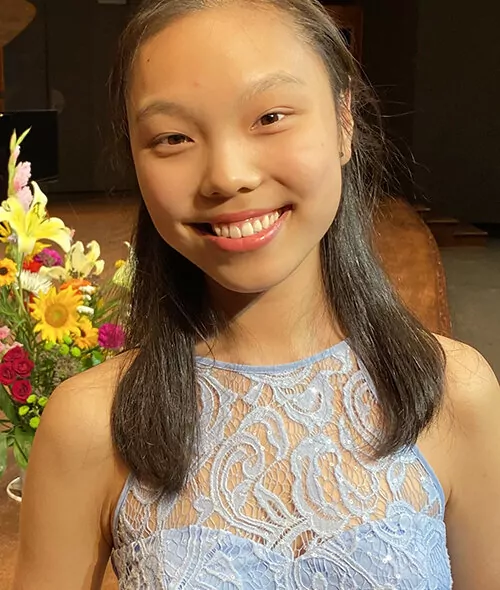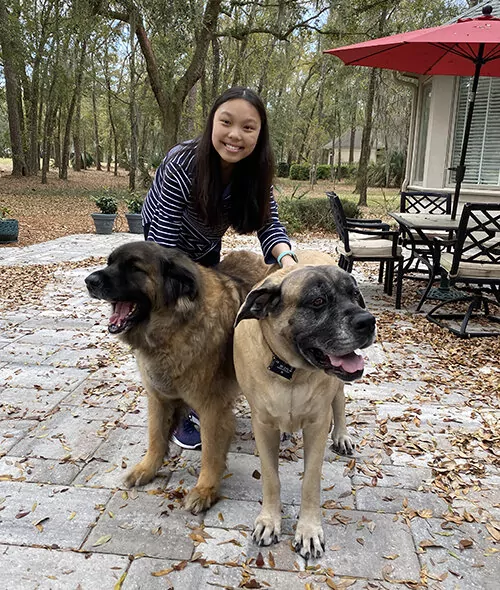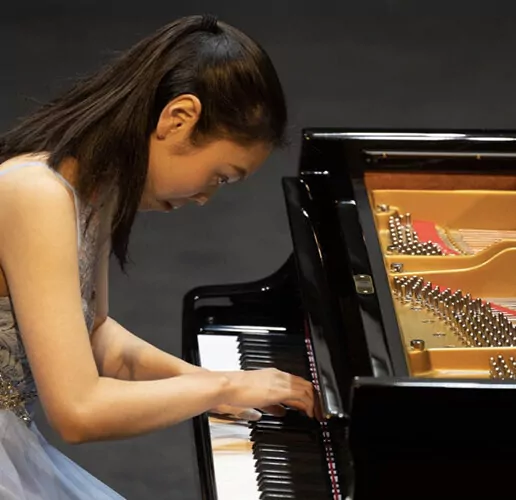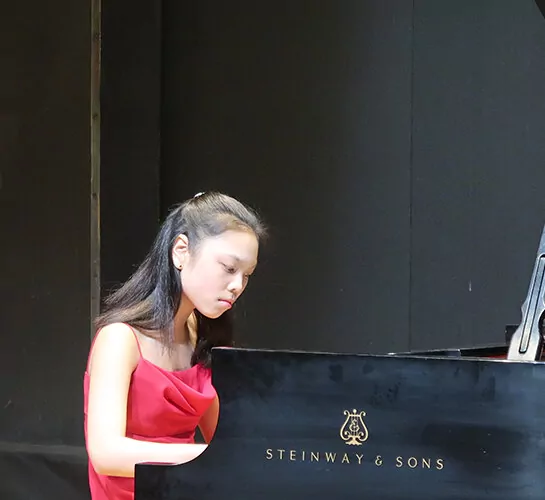Deeper Dive
In my project, “Innovation and Worldviews: A Challenge to Consistency and a Call for Change,” I explore the pianistic creative process as a lens through which the significance of flexibility can be understood. In the past fourteen years of playing the piano, I’ve discovered that being open to changing up a routine or method often sparks inspiration. Whether it means revamping my interpretation of a piece or producing sound at the keyboard in a different way, being flexible has helped me overcome many of my musical obstacles. However, flexibility was by no means an easy mindset to adopt. The idea of deviating from my preconceived expectations of my work process was daunting, and my subconscious understanding of a need for change as a sign of previous failure made it difficult to stay flexible. Most importantly, while hard work and consistency can be measured quantitatively—in the hours dedicated to work, in the number of music pieces learned—there is no such way to calibrate flexibility. This rendered the balance between flexibility and consistency an especially challenging concept for me to grasp. Over time, as I started to truly believe in the positive aspects of change, I found that being flexible began to come easier to me. Through accepting the inevitability of change in our modern society and understanding flexibility as a tool that gives us enough room to grow, I found that the path to reaching my goals can become much more self-tailored and efficient. Going beyond the sphere of personal aspirations, being flexible on a societal level can also mean higher levels of collective open-mindedness. Perhaps being flexible with age-old prejudices can help dismantle systemic and structural inequalities that target marginalized groups. Perhaps being flexible can create a more understanding society where every person feels seen and accepted.
As a student attending regular high school, balancing my academic and musical workload was challenging for me. In addition to the many hours of homework each night, participating in different piano competitions and festivals around the world further complicated my schedule. Interestingly, my topic of flexibility was incredibly relevant during the process of working on my project. Since I was traveling overseas for a piano competition during that same time frame, I needed to be flexible in the way that I managed my work. Using my time spent in airports and on airplanes to study my music scores, finish last-minute homework, and plan my Davidson Fellows project, I created for myself a mobile and flexible workstation. The COVID-19 pandemic also posed a significant challenge. With schools and recital halls closed, for the most part, I had to record my piano repertoire at home. While some piano competitions remained in-person, many performances were moved online or canceled. The electrifying experience of live and in-person music-making had always been a source of inspiration in terms of expanding my sound color palette and broadening my artistic interpretations, and coming out of a year with mostly virtual performances pushed me to find more ways of experimenting with sound.
I hope that my work encourages others to seek new experiences. It is so easy for humans to stay in their comfort zones and avoid the uncertainty of situations that involve change. However, through openness to different ideas, being flexible can help people mold their routines and processes to what fits them best, which can lead to not only a more efficient but also a more creative and fun approach to reaching one’s goals. During an era where so much of society has been transformed since the beginning of COVID-19, flexibility can help people adapt to these ever-changing circumstances. With social distancing guidelines in place, so many people were unable to mourn the deaths of their loved ones in the traditional way of attending a memorial service or a wake. With a flexible mindset, however, one has the ability to make peace and say their final goodbyes in their own ways. In wake of the tragedy caused by COVID-19, the war in Ukraine, and the recent school shootings, many people around the world—including my family—are struggling with grief. It seems like flexibility is relevant, now more than ever. Whether it is being applied on a personal level to deal with challenges or on a societal level to solve global conflicts or to help with collective grief, flexibility has the power to effect positive change.



